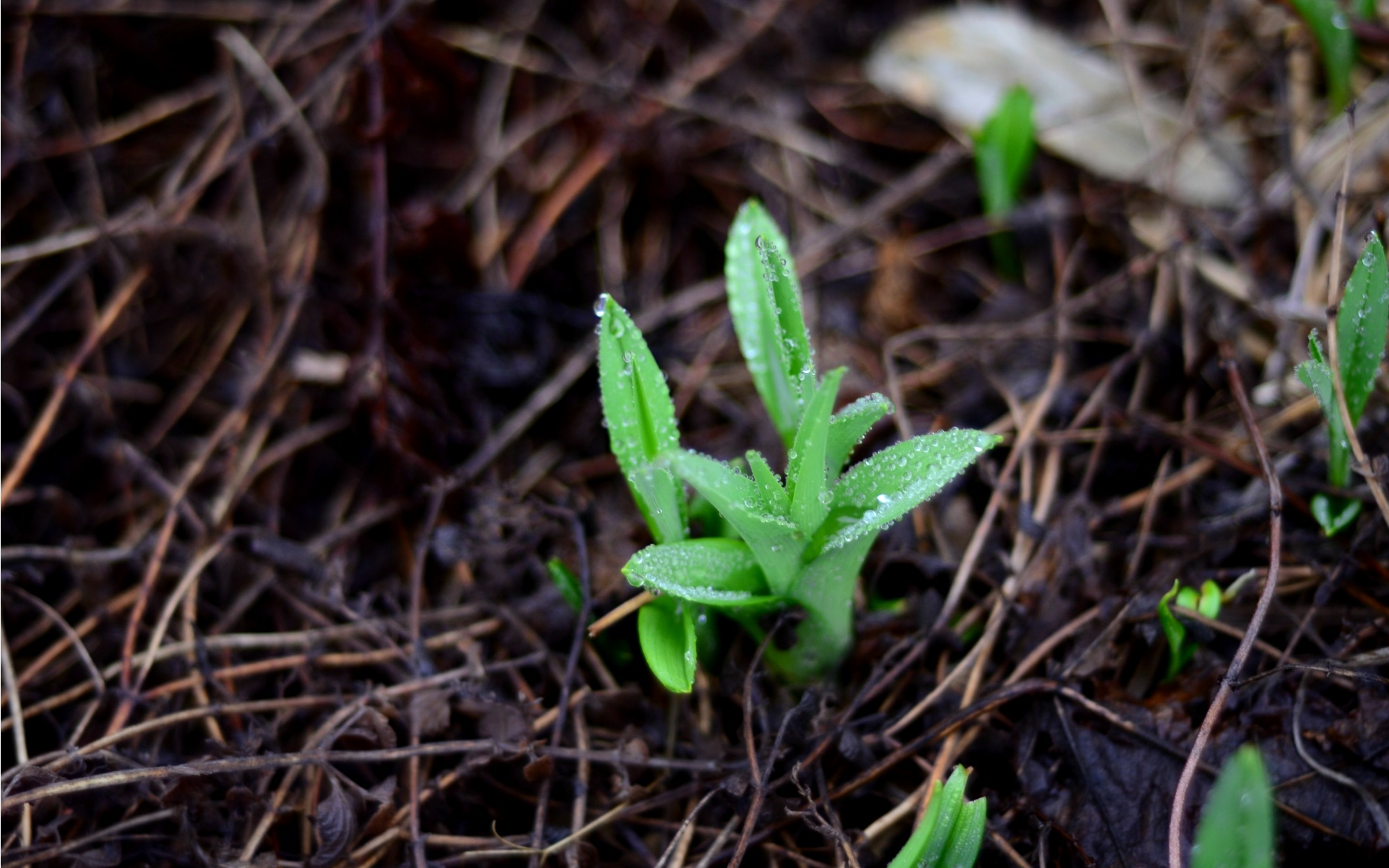What Do a Buddhist, Episcopalian, Sikh, and Jew Have in Common?

The beginning of a new year is the time for renewal. An opportunity to begin again. It’s a secular holiday, sure, time for detoxing and resolutions (we’re absolutely going to learn Portuguese for real-real this year, definitely). For Mash-Ups of all religions, renewal is also a spiritual act — an act of faith and commitment to oneself. You don’t have to wait for New Year’s Day: Renewal can happen in January, it can happen in April, and it can happen every day. We asked five spiritual leaders to share what renewal means to them, and how you, a Buddhist, Episcopalian, Sikh, Jew, all, or none of the above, can find renewal as well. Happy New Year, Mash-Ups.
Buddhist Forgiveness
Ajahn Prasert, Abbot of Wat Buddhanusorn, Fremont, Calif.
In Buddhism, renewal is just part of the continuous flow. In general, there’s no ritual or tradition in our faith that honors the renewal. We believe that renewal is mainly about yourself. If things are not good now, then you let it go and try again harder and smarter next time. Forgive yourself, and recommit to the right path.
Forgive yourself.
In today’s society, people often feel guilt or are hard on themselves when they make a mistake. But even Buddha had a path, and that he too needed to renew when he felt lost. “Renewal” might be misleading in Buddhism, since you are always building and learning from your previous experiences and previous lives. In this way, even our “mistakes” are useful.
So learn from the past previous 365 days and then stay focused and conscious about what you want to accomplish for the next 365 days. In the continuous flow, you renew yourself every time you commit to trying again.
Episcopal Communion, and Community
The Rev. Canon Dr. Katharine C. Black, Church of St. John the Evangelist, Boston, MA
It’s been said that what kept Episcopalians together was the Book of Common Prayer and the clergy clothing store. Neither is always standard now in the USA. Nothing in an Episcopal Church is predictable — at least not what’s said or worn. Possibly because the Church evolved with renewal. We’ve always had a way to join: baptism. At the Cathedral where I work, the musician and I are quite sure that we have the same idea about what’s important: mystery.
We want meaning and mystery.
We see old-line Episcopalians, immigrants from Africa, homeless folk, long-present Caribbean people, a Chinese congregation, and a variety of other seekers. They want meaning, thought, and they want to feel comfortable in these communities. People accept the invitation to communion to join the community’s circle, baptized or not, trusting the welcome offered from every altar in the form of challah, wafers, pita, gluten free crackers, or homemade brown bread.
A glowing nautilus fills the bright blue pediment over our Cathedral’s door to show our vision. A nautilus grows a new cell each month, which is always connected to its whole past. This is both our model and our committed renewal practice.
Rev. Liz Zivanov, Rector at St. Clement’s Episcopal Church, Honolulu, HI
Weekly worship according to The Book of Common Prayer in one’s faith community is crucial for the spiritual renewal of Episcopalians. The act of renewal is not set aside for specific times of the year; for Episcopalians it is an ongoing daily and weekly effort. We consider Sunday morning worship in the community as our primary time for renewal.
We walk together wherever we are without judgment.
Episcopalians move along on their spiritual journeys accompanied by others in the faith community. We acknowledge that every person is at a different place on their journey and we walk together wherever we are without judgment. We do this in the context of the study of our sacred writings, discussions of current issues in the context of our faith and tradition, days of quiet and retreat, and even having fun together as a faith community.
We’re Episcopalians, so we don‘t proselytize, but we do encourage others who are seekers to join us.
Sikh Self-Improvement
Simran Jeet Singh, Senior Religion Fellow, The Sikh Coalition, New York, NY
Sikh wisdom teaches that that everything in this world is absolutely infused with divinity. The Creator permeates all of Creation, and therefore everything in this world — including time and space — is equally divine. Because we are divine beings at our core, this life is an opportunity for us to realize our divine potential. This precept is foundational to the Sikh belief in absolute equality across all social categories, including religion, gender, class, and social class. This outlook also feeds the belief that each and every moment offers us the opportunity to move towards realizing our potential, and every single breath we take offers us a chance to become a better version of ourselves.
Let’s commit to constantly becoming the best versions of ourselves.
Just as there is no single person who is inherently more divine than any other, there is no special time or day that is inherently linked to renewal and revitalization. According to the Sikh tradition, renewal does not occur in a single moment of time or at a particular time of year. Instead, renewal is a process that we undergo through the purposeful practice of self-cultivation.
The Sikh lifestyle is set up to help the individual engage in practices that facilitate renewal and growth. The basic concepts of remembering the Divine (nam japna), working ethically and honestly (kirat karna), and sharing one’s earnings with the less fortunate (vand chakna), point to the ways in which basic Sikh concepts translate into practices that lead to self-improvement.
These are practices that we can be doing at all times, regardless of our situation or circumstance. I would implore you to remember that every second of our life is filled with potential for renewal. Let’s all commit to constantly becoming the best versions of ourselves.
Jewish Beginnings
Rabbi Scott Perlo, Associate Director of Jewish Programming, Sixth & I Historic Synagogue, Washington D.C.
The Gregorian calendar. Hmmph. Starting the year in the middle of winter, when nothing is growing. For the birds, as my mother would say.
In Judaism, we like to celebrate the new year so much, we made it twice as nice. Seriously: Jews have two New Years. I suppose that’s a little crazy too.
Time is not a straight line, it’s a spiral.
The first of them is the least well known. It happens right at the beginning of spring, about two weeks before Passover. So sure, Passover is about the Exodus from Egypt (the one that Christian Bale ruined for me forever), but its major subtext is renewal. It is spring and we are starting fresh and beginning again. The second new year is the one that everybody knows about, Rosh Hashanna, that comes in the fall. The Torah teaches that that was the day the world was born. Hence, Jews eat. That’s what we’re about.
In Jewish thought, time is not a straight line, it’s a spiral. So renewal means coming back to the beginning, starting over again, returning to baseline, going back to the source, and getting another chance. Hadesh yameinu k’kedem – Renew our days like they were in the beginning, says the Book (Lamentations 5: 21).
We’re big into this starting over business. The Torah says that every seven years, in Israel, we can’t farm for a year in order to let the land start over; debts are forgiven too. Every 50 years, property reverts to its original owners. Most of this stuff is aspirational, but the intention is clear: Everything should have the chance to go back to its source.
So if you’d like to be a little Jewish about it, let winter be winter, and let yourself lie fallow and quiet, dreaming about the spring, and how you’ll begin again.





